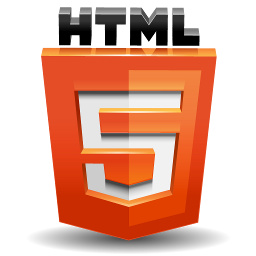 HTML is often colloquially understood as the grounds which the internet is built upon. The language of the net, Hyper Text Markup Language, and its standardized use has been maintained over the years by World Wide Web Consortium (W3C), but no longer that is the case.
HTML is often colloquially understood as the grounds which the internet is built upon. The language of the net, Hyper Text Markup Language, and its standardized use has been maintained over the years by World Wide Web Consortium (W3C), but no longer that is the case.
W3C has decided to abandon the maintenance of HTML and DOM standards and has handed the torch to a organization called WHATWG. WHATWG, or Web Hypertext Application Technology Working Group, has been around since 2004 and been an integral part of HTML standard development.
The group includes representatives from most of the largest web browser developers, inluding Apple, Google, Mozilla, and Microsoft. Alongside these behemoths there are hundreds of other members.
Previously WHATWG has done some of the hard lifting in determining future specs of web standards before the standardization process was completed by W3C.
Up until early last year, W3C and WHATWG worked together fairly seamlessly, but problems arose around W3C's implementation of DOM standard v4.1 some of which influential WHATWG members objected to.
Now after a year of back and forth, W3C has decided to hand the reins to WHATWG when it comes to HTML and DOM standard implementation.
The transfer of power seems to have happened in a very civil manner, and there's still plenty of areas where the two groups collaborate.
This means that web browser developers are themselves responsible for future developments and standardization of both HTML and DOM.
One could easily see why this might be a good thing, as long as WHATWG can stay a cohesive group effort. Certainly seems reasonable that cases where standards are not being followed by web browsers is going to be less of an issue.
The group includes representatives from most of the largest web browser developers, inluding Apple, Google, Mozilla, and Microsoft. Alongside these behemoths there are hundreds of other members.
Previously WHATWG has done some of the hard lifting in determining future specs of web standards before the standardization process was completed by W3C.
Up until early last year, W3C and WHATWG worked together fairly seamlessly, but problems arose around W3C's implementation of DOM standard v4.1 some of which influential WHATWG members objected to.
Now after a year of back and forth, W3C has decided to hand the reins to WHATWG when it comes to HTML and DOM standard implementation.
The transfer of power seems to have happened in a very civil manner, and there's still plenty of areas where the two groups collaborate.
This means that web browser developers are themselves responsible for future developments and standardization of both HTML and DOM.
One could easily see why this might be a good thing, as long as WHATWG can stay a cohesive group effort. Certainly seems reasonable that cases where standards are not being followed by web browsers is going to be less of an issue.













